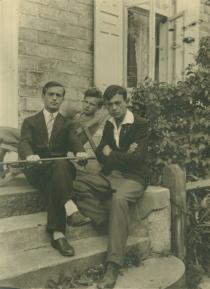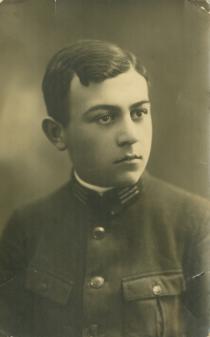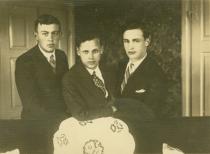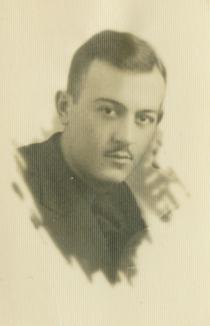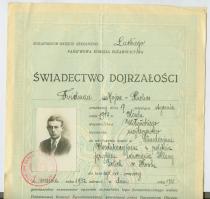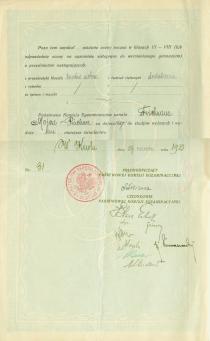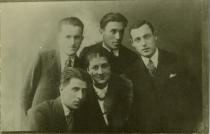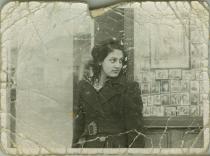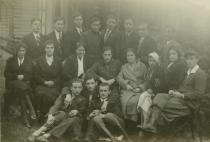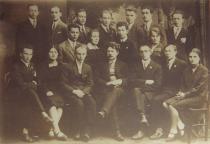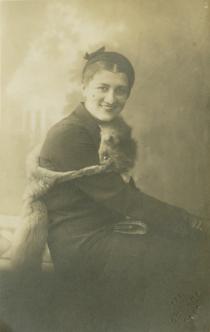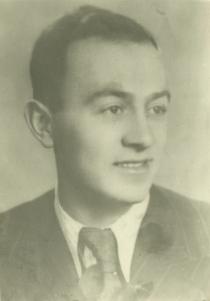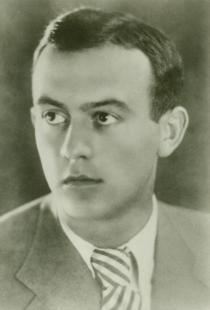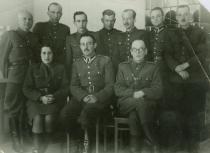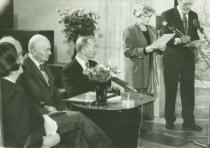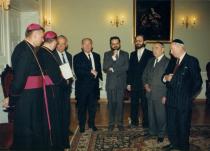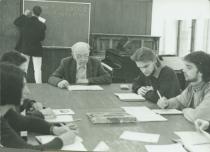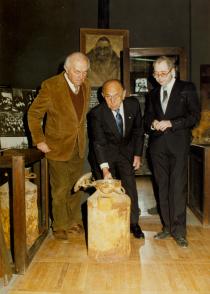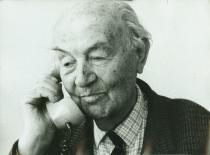This is me with my two collegues from Tarbut gymnasium. The photo was taken in Kovel in 1929 in the studio. The photographer was the father of one of these boys, his family name was Geller.
Hebrew was the everyday language for my friends and me. In Hebrew, I could write quite well, in a fine literary style. It was mostly girls who insisted that we spoke Hebrew. When at a certain age we started to go out with them, court them, they would set one condition. We will speak only in Hebrew. I remember one such pretty girl, Szewa Werba. I had to court her in Hebrew. After all, we have the greatest erotic poem in the world - the 'Song of Songs'. And I knew the 'Song of Songs' almost by heart.
The Tarbut gymnasium focused on preparing young people to move to Palestine. I remember a moving scene. One day, the director assembled all the classes. The year was probably 1925. He announced to us that at the very moment that we were speaking there, the opening of the Hebrew University was taking place in Jerusalem. That was a very stirring experience for us. 'For out of Zion shall come the Torah and God's Word,' said the director. All of us present there resolved at that moment that, after acquiring a profession, we would go to Palestine. Some went to university in France and when the war broke out, they made their way to Palestine. As teachers of Hebrew, they were worth their weight in gold. Unfortunately, I waited too long. I can't say that I regret it. But at times I am visited by a tormenting thought that things might have been different.
I graduated from the gymnasium at the age of 17; it was 1930. Afterwards I became a private tutor in Kovel. I taught Polish, History, and Hebrew. At that time, Hebrew was a gold mine since in order to get into Palestine, some sum of money stipulated by the English had to be paid and the prospective emigre needed to demonstrate his command of Hebrew. Hebrew examinations took place in Brest, where students from throughout Poland came. I had a friend; Josele Szpak was his name. I already told you about his father. But Szpak didn't know Hebrew. So I went to Brest pretending to be Szpak and naturally wrote a composition there, on the basis of which he got his certificate, his departure paper. In the 1980s I called on him in Israel. Perhaps he is still alive? Szpak was the owner of a bakery then. I had dinner at his place. Introducing me to his wife, he said: 'This is the man who saved my life.'

